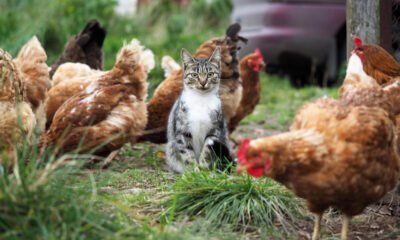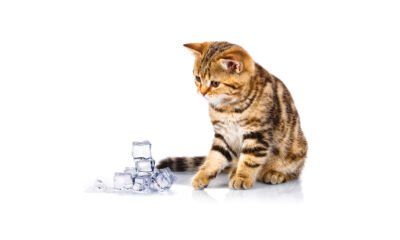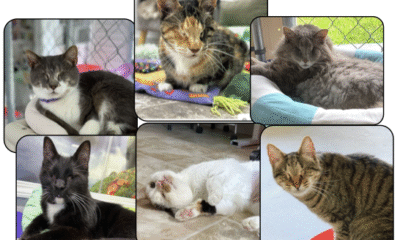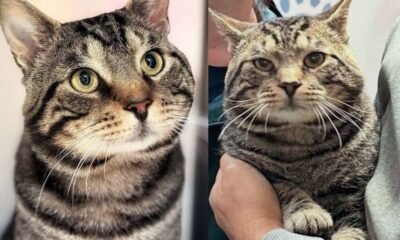Cat Facts
Why cats prepare you!
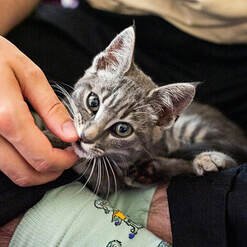
Does your favorite feline favor you with copious licks throughout the day? Have you ever wondered if this form of preparation is normal?
According to several veterinary and behavioral experts, this beautiful and peculiar behavior is, in fact, quite normal and has offered the following explanations for it.
Your cat is preparing you because she wants, literally, clean you. When he prepares you, he is expressing his affection for you and trusts you, and communicating that he considers your family. What could be more rewarding than feeling that soft and thorny tongue on your skin, surely knowing that you are the lucky receiver of your kitten’s love care?
Your cat is preparing you as a way to “claim.” It is quite similar to your endearing habit of constantly rubbing against you. Since all cats mark their territory through the aroma glands located in their saliva, when preparing their parents with their languages, they do so to reinforce the special link they have with them.
Your cat is preparing you because you want attention. Far from subtle, when his cat licks, licks, he licks you, this is clearly his way of letting him know that his complete and undivided attention is necessary, or rather demanded, at the same time.
Your cat is preparing you because he likes the way you know and/or smell. Recognized for their sharp sense of smell and endless curiosity, cats can enjoy the salty flavor of their owners’ skin or the aroma of their perfume, shampoo or soap. However, if your own kitten begins to prepare it after having applied products such as insect repellent, sunscreen or a topical medication, offer you a gift from lamelible cat. Because? These products are harmful if they are ingested, and the gift will be distracted and satisfied.
Your cat is preparing you as a way to relieve stress. Like kneading and sucking the blankets, preparation can be an effective self -managed mechanism for felines. If his favorite feline feels especially anxious or stressed, he could participate in this practice to seek comfort and tranquility. If you suspect that you suffer from some form of stress, it offers its hugs, curled up and additional pets and talk to it, gently and calm, again and again.
However, if you prefer not to be clean, also known as prepared by your kitten, these same experts offer the following suggestions:
Gently redirect your attention. Keep it entertaining with several new and exciting toys or involve it in some intense interactive game sessions every time you are about to prepare.
Get away from her briefly. However, before doing so, it offers an alternative to affection that clearly longs for brushing, stroking or caressing it.
Change your perfume, shampoo and/or soap. Through the test and error, find scented substitutes that read you, not her, or consider free fragrances.
Provide a quiet and stress space. If your preparation is caused by anxiety or fear, cancel a small corner of your full home with a natural sound machine, soothing chewing and plush toys that reduce anxiety.
window.fbAsyncInit = function() {
FB.init({
appId : ‘190291501407’,
xfbml : true,
version : ‘v2.6’
});
// Set Facebook comment plugin’s colorscheme based off of theme
var comments = document.getElementsByClassName(‘facebook-comment-widget’),
scheme = document.body.className.match(‘wsite-theme-light’);
for (var i = 0; i < comments.length; i++) {
comments(i).setAttribute('colorscheme', scheme ? 'light' : 'dark');
}
var fbCommentCounts;
FB.Event.subscribe('xfbml.render', function(){
fbCommentCounts = jQuery('.fb_comments_count');
for (var i = 0; i < fbCommentCounts.length; i++) {
var commentText = (jQuery(fbCommentCounts(i)).text() == '1' ? "Comment" : "Comments");
jQuery(fbCommentCounts(i)).parent().siblings('.fb_comment_count_label').text(commentText);
}
});
var comment_callback = function(res) {
FB.XFBML.parse(); // Refresh comment counters on page
}
FB.Event.subscribe('comment.create', comment_callback);
FB.Event.subscribe('comment.remove', comment_callback);
};
(function(d, s, id){
var js, fjs = d.getElementsByTagName(s)(0);
if (d.getElementById(id)) {return;}
js = d.createElement(s); js.id = id;
js.src = "https://connect.facebook.net/"+_W.facebookLocale+"/sdk.js";
fjs.parentNode.insertBefore(js, fjs);
}(document, 'script', 'facebook-jssdk'));
Cat Facts
Group in cats: Should you be worried? – Modern cat
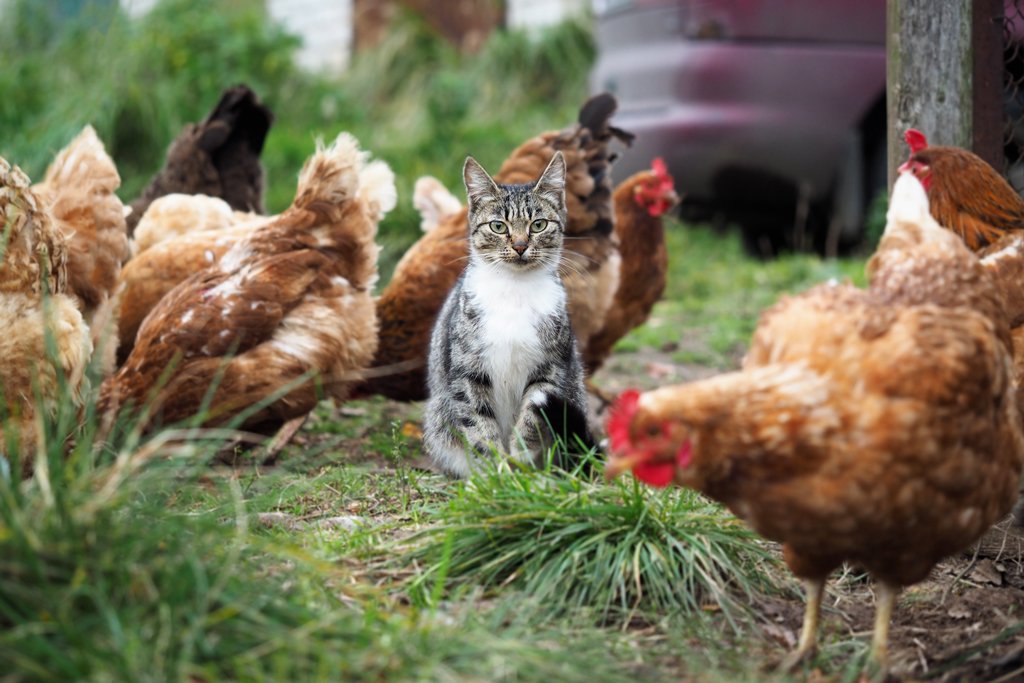
As for the headlines on the aviar flu, or H5N1, it has led to worry among the farmers of the rear patio, the individuals and the pet parents equally. Although the avian flu has historically found itself in Africa and Asia, it has more recently spread to Europe, North America, Central and South and Antarctica. How big is a threat is the flu for birds for your cat? Should you be worried? Here we show you how to protect your cat, you can contract the avian flu.
Wild birds transport aviar flu, which can be extended to other birds, and especially affects domestic poultry, such as chickens and turkeys. Although avian flu can spread to mammals, it is not common. Canada’s health He currently informs that the risk for humans is low, assuming that they are not in direct contact with birds. But what about cats? Let’s take a closer look.
What is the bird flu?

Monticello/Bigstock
Aviar flu is a type of infection caused by a flu virus, usually influenza A. The strain that veterinarians and other health experts are now called H5N1. While wild birds often do not exhibit symptoms while carrying the disease, it can spread rapidly through domestic birds, including chickens, turkeys and ducks. Although the risk for humans is still low, there have been some cases of humans that contract the virus. Most of the time, this is because people come into direct contact with sick birds, such as agricultural workers. It is very rare for avian flu to spread among people.
It is known that cats are highly susceptible to the virus.
Are pets at risk of avian flu?
Dr. Wailani Sung, veterinary behavior certified by the Board and senior director of admission and welfare of animals in CheerfulHe says: “Yes, pet parents with cats that come out outdoors and have the possibility of finding or eating sick or infected birds or cattle, must take additional preventive measures to maintain their safe feline.” She points out that dogs have a lower risk, but pet parents need to take precautions so that their dogs do not come into contact or eat infected birds or cattle.
It is known that cats are susceptible to virusThe New York Times reports, and the virus may have passed to its owners.
Currently, the American Veterinary Medical Association (AVMA) informs that dozens of cats have contracted the disease. In Canada, there has only been A case reported by a dog that hires bird fluAfter contacting a wild goose. Unfortunately, the dog died after developing clinical symptoms.


Denisnata/Bigstock It is known that cats are highly susceptible to avian flu virus, reports the New York Times
Prevent avian flu in cats and dogs
Exposure limit
Dr. Nita Vasudevan, veterinarian, says “The best way to protect your pets is to limit their exposure to wild birds.” For cats, this could mean keeping them indoors or supervising their past time outside. A controlled environment, like a catio, is an excellent way to allow your cat for a long time while keeping them safe and safe. If you own a dog, you will want to avoid any place where your dog can find a sick bird, such as ponds and other places where waterfowl gather. For example, you will want to avoid leaving them out of Correa near the ponds and other bodies of water. Although both cats and dogs can enjoy birds gathering in a bird food, they will want to make sure they avoid any direct contact with the feeder.
Feed a safe diet
It is also important to consider your pet’s diet when thinking about preventing avian flu. Dr. Sung points out that pet parents should Avoid feeding your pets with raw or little cooked meat diets, including lyophilized foods that have not cooked.
There have been several reports that cats get sick with avian flu due to raw food consumption. Two cats in the state of Washington developed aviar flu symptoms After eating potentially contaminated raw foods. Some brands
of Raw cat food has also been removed Due to the possible contamination with the aviar flu. Currently, the FDA recommends that pet parents cook raw foods that are feeding their pets to help reduce the risk of disease. Google to obtain updated information about any pet food retreat.
You will also want to be careful when feeding your pet of milk, cheese or cream without pasteurizing or raw, since they can contain potentially harmful bacteria and viruses, including avian flu. Choosing a high quality croquette commercially is a good option, since they heat up at high temperatures to kill any viruses or bacteria. If you cook for your pet, you will want to make sure that any meat or egg is heated to the right temperature to kill the pathogens. For example, chicken must be heated to 74° C.


Dmitriev Mikhail/Bigstock
Avoid propagation
If you come into contact with infected birds yourself, you will want to be especially cautious. “Pet guardians should change their clothes and shoes and completely wash any exposed skin if they have come into contact with sick or dead animals infected with avian flu, ”says Dr. Sung.
The same is true if you have chickens. Dr. Vasudevan says: “If you keep chickens from the rear patio, practice strict biosafety measures: wash your hands, change your shoes and keep the pets separate from poultry spaces.”
Practice good hygiene
While it is not specific to avian flu, practicing good hygiene is important to help control the spread of viruses and bacteria. This includes keeping your pet’s feed area clean, wash your food and water bowls daily, and wash your hands regularly, especially after handling animals or your food. You will also want to practice good hand hygiene after handling bird feeders and being outside. People who work with potentially infected animals, including cats and dogs, should use adequate personal protective equipment (PPE) and practice good hygiene.


Capricorn/Bigstock
Monitor outbreaks
Being informed about outbreaks in your area can help you make informed decisions for your pets. He Canadian Wildlife Health Cooperative It provides a map where you can monitor outbreaks and confirmed cases of aviar flu. If it is in an area that is experiencing an outbreak, you can be careful to avoid local areas where birds gather, such as parks or wetlands. If there is an outbreak in your area and worries you how to keep your pet safe, you can also consult your veterinarian.
Make sure the vaccines are updated
While there is currently no avian flu vaccine, ensuring that your pet’s vaccines are updated can help protect them from similar diseases. This also helps keep your pet in good health, which is important when there is a current outbreak.
Avian flu symptoms in cats and dogs
Avian flu symptoms in cats and dogs can be initially similar to upper respiratory infection, which include:
- Cough or sneeze
- Difficulty breathing
- Lethargy
- Fever
- Reduced appetite
- Inflamed eyes
- Vomiting or diarrhea
- Nose and eyes download
Dr. Vasudevan says that if any of these symptoms notice in their cats and dogs, especially after having been in contact with the birds, to contact their veterinarian immediately, since early detection and support attention can make an important difference in the well -being of their pet.
Dr. Sung also points out that his cat or dog can exhibit signs of neurological problems, which include:
- Tremors
- Incursions
- Incoordination
- Blindness
If your dog or cat has been diagnosed with avian flu, you will also want to make sure your own health, including its temperature.
How is avian flu treated?
Because aviar flu is a virus, it is treated with support care. This means providing food and water to your pet, and supplementary oxygen if necessary. If your dog or cat does not eat or drink, then veterinarians can provide intravenous fluids or appetite stimulants. If your dog or cat develops a secondary infection to avian flu, such as pneumonia, then antibiotics can be provided.
Can avian flu extend to humans?
Dr. Sung says that the probability that humans will be infected by avian flu through their pets (and in general) is low, but there has been Some confirmed cases. She points out that people who are immunocompromised have the greatest risk, and that the detection and early reports are important to help prevent the propagation of avian flu.


New Africa/Bigstock
Prevention is key
“The risk is still very low for most pets, but consciousness and prevention are key,” says Dr. Vasudevan. People who have outdoor cats, dogs that roam in heavy birds or who have chickens in the backyard should be the most aware of practicing good hygiene and helping their pets to avoid contact with potentially infected birds.
! function(f, b, e, v, n, t, s) {
if (f.fbq) return;
n = f.fbq = function() {
n.callMethod ?
n.callMethod.apply(n, arguments) : n.queue.push(arguments)
};
if (!f._fbq) f._fbq = n;
n.push = n;
n.loaded = !0;
n.version = ‘2.0’;
n.queue = ();
t = b.createElement(e);
t.async = !0;
t.src = v;
s = b.getElementsByTagName(e)(0);
s.parentNode.insertBefore(t, s)
}(window, document, ‘script’,
‘
fbq(‘init’, ‘217459879149017’);
fbq(‘track’, ‘PageView’);
Cat Facts
Video: Cat is a new bed in a completely unexpected place
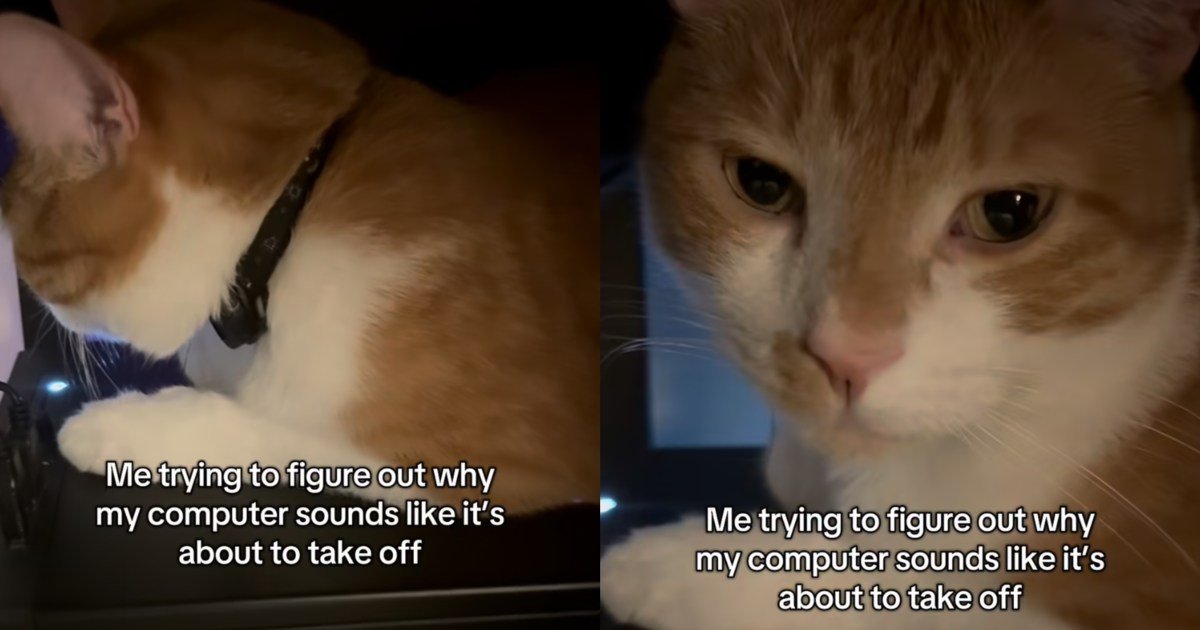
Working from home with a cat is always a bet. At one point they curtinate peacefully in the window of the window, and then walk through their keyboard in the middle of the zoom call or claim their laundry freshly folded as his. However, just when you think you’ve seen everything, cats remind you that no place is too strange (or too important) to become a nap zone. One of those moments was captured on video when a curious cat decided that the CPU of a computer made the new perfect bed.
Cat lands unexpectedly on the computer’s CPU as your new video bed
Leo, an orange, has gone viral after choosing an unusual place to catch some Zs. The video begins with a desktop view, focused on a keyboard. You can hear a loud noise from the computer in the background. The owner adds a text superposition that says: “I am trying to discover why my computer sounds as if it were about to take off.”
As the camera moves, the culprit is revealed. Leo sets calmly at the top of the CPU under the desktop, completely imperturbable. He sits as if he had done this a hundred times, clearly sure that this warm and buzzing box was made only for him. The combination of sound, images and notice expression of Leo make the moment hilarious and relatable.
Cats are naturally attracted to warm, closed and elevated spaces due to their instinctive need for safety and comfort. Heat plays a key role to help them regulate the temperature of their body, particularly during rest periods.
In addition, elevated areas offer a sense of security and supervision of their surroundings. The soft blankets, the sunny potters or even the upper part of a warm device often become favorite resting places for cats. This is because these areas offer a combination of warmth, refuge and a clear point of view.
To maintain your safe computer and your happy cat, it is an intelligent idea to provide cozy alternatives nearby. A petfacked pet pad or a comfortable cat bed near your desk can help redirect your attention. Of course, knowing cats, there is still a good possibility that they choose the top of the CPU anyway.
Cat Facts
Should you hire a cat? The cat programs that work throughout the country offer hairy pest control
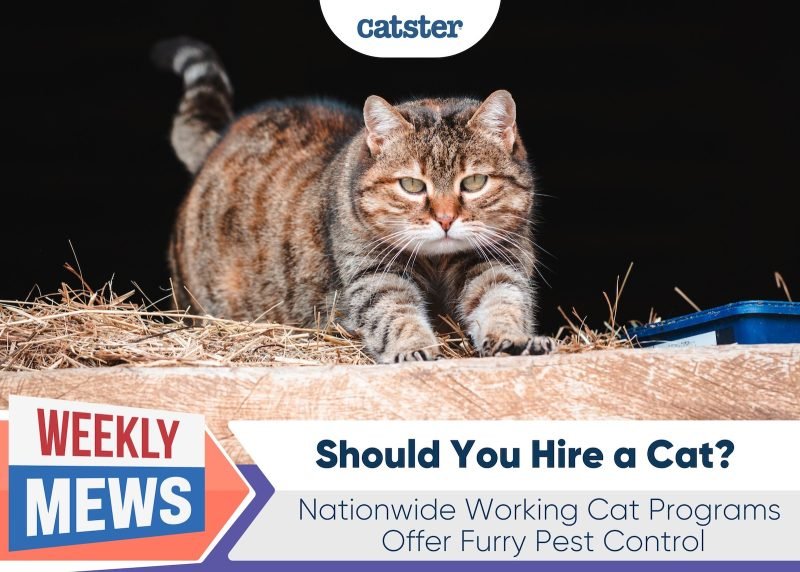
Many of us are accustomed to leisure cats, who while they were in their days sleeping nap in the sun, enjoying the triggering grass and playing with feathers wand toys. But there is another type of cat for adoption, or we should say, hire.
The work work programs, offered by certain bailouts and sanctuaries throughout the country, allow you to adopt cats that will live in their barn or business and serve as natural rodent control. Adopting these cats gives them a home, care and work, and you get a barn, church, warehouse or factory without pests.
How does it work?
Although the details depend on the program you choose, this is how the process works in the Best friends animal society In Kanab, Utah.
Start communicating with the sanctuary and letting them know that you are interested in adopting cats that work for your farm, church or businesses. Because the cats that work do better in pairs, the sanctuary will select two cats that will work well together.
Like any other cat for adoption, the cats that work are vaccinated, microchizers and sterilized or castrated. You can give up the adoption rate.
On the day of adoption, bring a robust plastic bearer approved by the airline. When you arrive at the new home of cats, the sanctuary recommends keeping them locked in a room for two weeks to help them acclimatize. After that, they are ready for work!
Note that you do it You need to provide shelter, food and medical care For your new cats that work. It’s not much to ask in exchange for a business without pests!
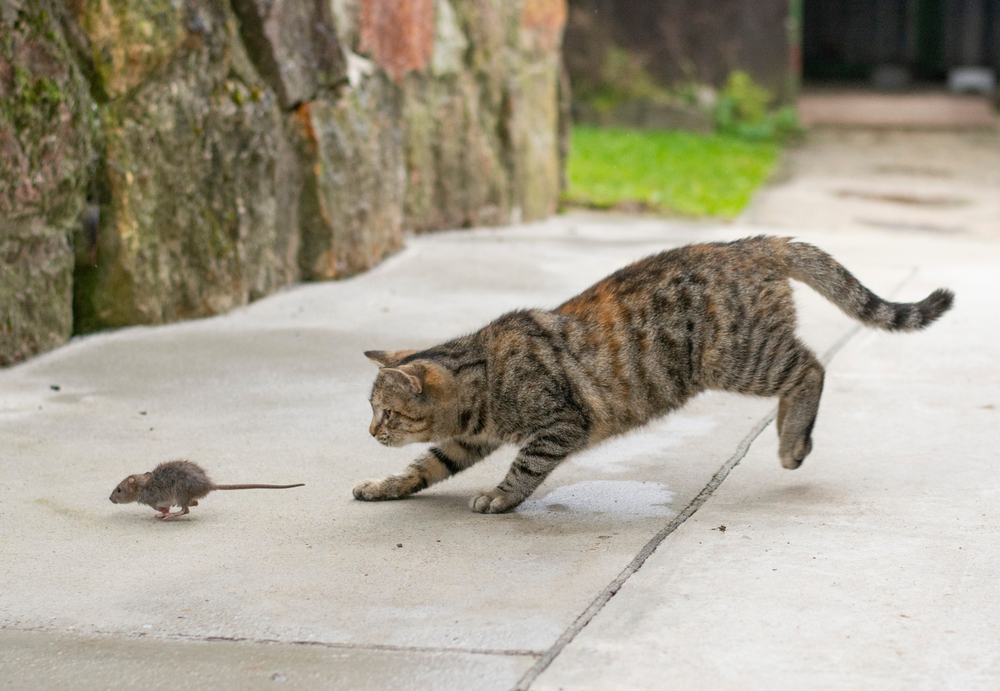
Why do these cats work instead of pets?
Cats that end in cat programs that work are not united to people and are not socialized to live as pets. It is possible that these independent cats are not willing to use a sand box, react badly to handling or simply do not have the temperament to be pets.
Cat programs that work offer a better life for these cats than to live as street. As employees, they have access to food and water, as well as basic medical care and an inner place to sleep.
How is a Cat program in operation?
The best way to find a cat in operation is to look for one in its state. Most rescues, sanctuaries and shelters offer cat programs that work because not all rescued cats can be adopted as domestic pets. Many rescues and shelters will also allow you to adopt in all state lines and help you solve transport details. You can also communicate with your local refuge to see if you have cats available.
These are some of the CAT programs in operation that are currently executed:
- Human Society of the County of La Plata (Colorado)
- Footills Animal Shelter (Colorado)
- Human Society of San Diego (California)
- ASAP Cats (California)
- Humane animal society (Minnesota)
- Ruff Start Rescue (Minnesota)
- Meowsquad (New York City)
- Human Society Tampa Bay (Florida)
- Texas SPCA
There are many more throughout the country, so if you need pest control (or know a business or a church that can use some help), do not hesitate to start the search! Salaries can be low, but their new hairy employees will appreciate the work (and the comfortable place to sleep!).
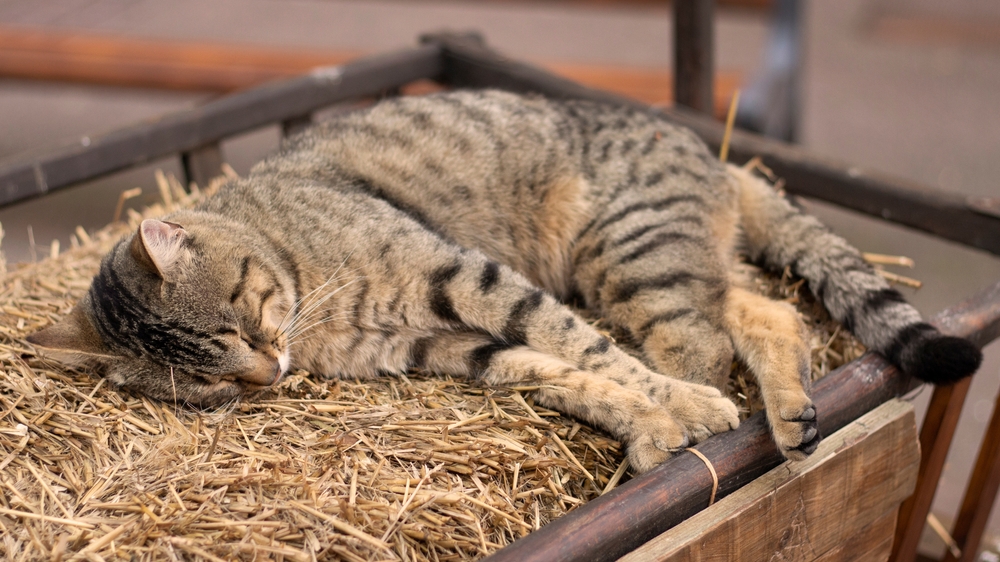
The publication should you hire a cat? The National Cat Working programs offer control of hairy pests of Kate MacDonnell first appeared in Catster. The copy of complete articles violates copyright laws. It is possible that it is not aware of this, but all these articles were assigned, hired and paid, so they are not considered a public domain. However, we appreciate that you like the article and that you would love if you continue sharing only the first paragraph of an article and then linking the rest of the piece at Catster.com.
-

 Cat Facts4 months ago
Cat Facts4 months agoThe Times of the Gatera grass
-

 Cat Facts5 months ago
Cat Facts5 months agoDelicious cat tattoo ideas – Modern cat
-

 Cat Behavior5 months ago
Cat Behavior5 months agoKnow brown cats – Modern cat
-
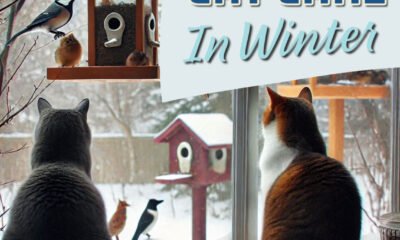
 Cat Behavior4 months ago
Cat Behavior4 months agoGreater Cat Winter Care: Non -Cold Old | Cat wisdom 101 Layla Morgan Wilde
-

 Cat Behavior4 months ago
Cat Behavior4 months agoThe full guide of Cat Cafes in the United Kingdom
-
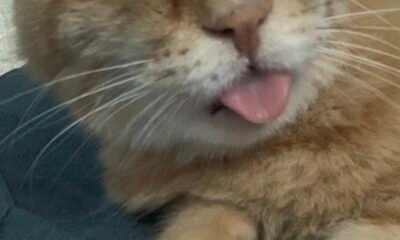
 Cat Facts4 months ago
Cat Facts4 months agoStrange behaviors of explained cats – Cat Behavior Alliance and Carolina Cat Sanctuary
-
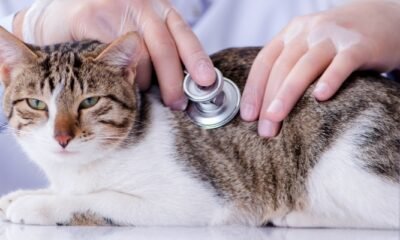
 Cat Facts5 months ago
Cat Facts5 months agoHow Often Do You Take a Cat to the Vet?
-
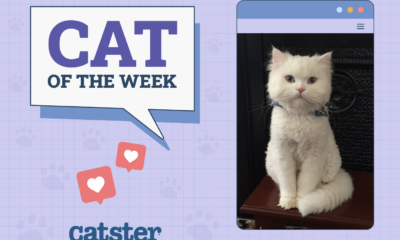
 Cat Facts3 months ago
Cat Facts3 months agoCatster Photo Contest: Winners of the Week of Cats of the Week (March 20, 2025) – Catster

